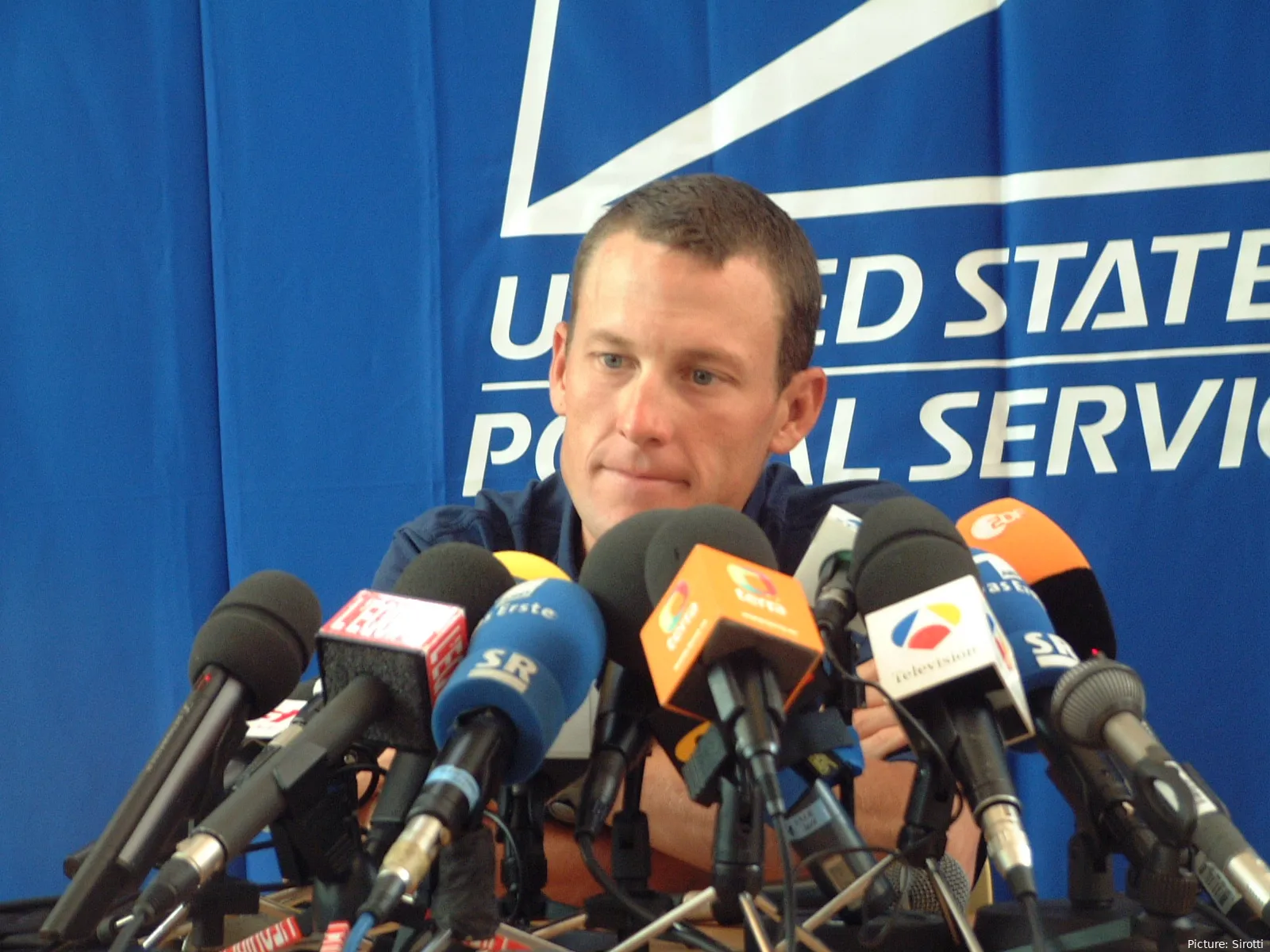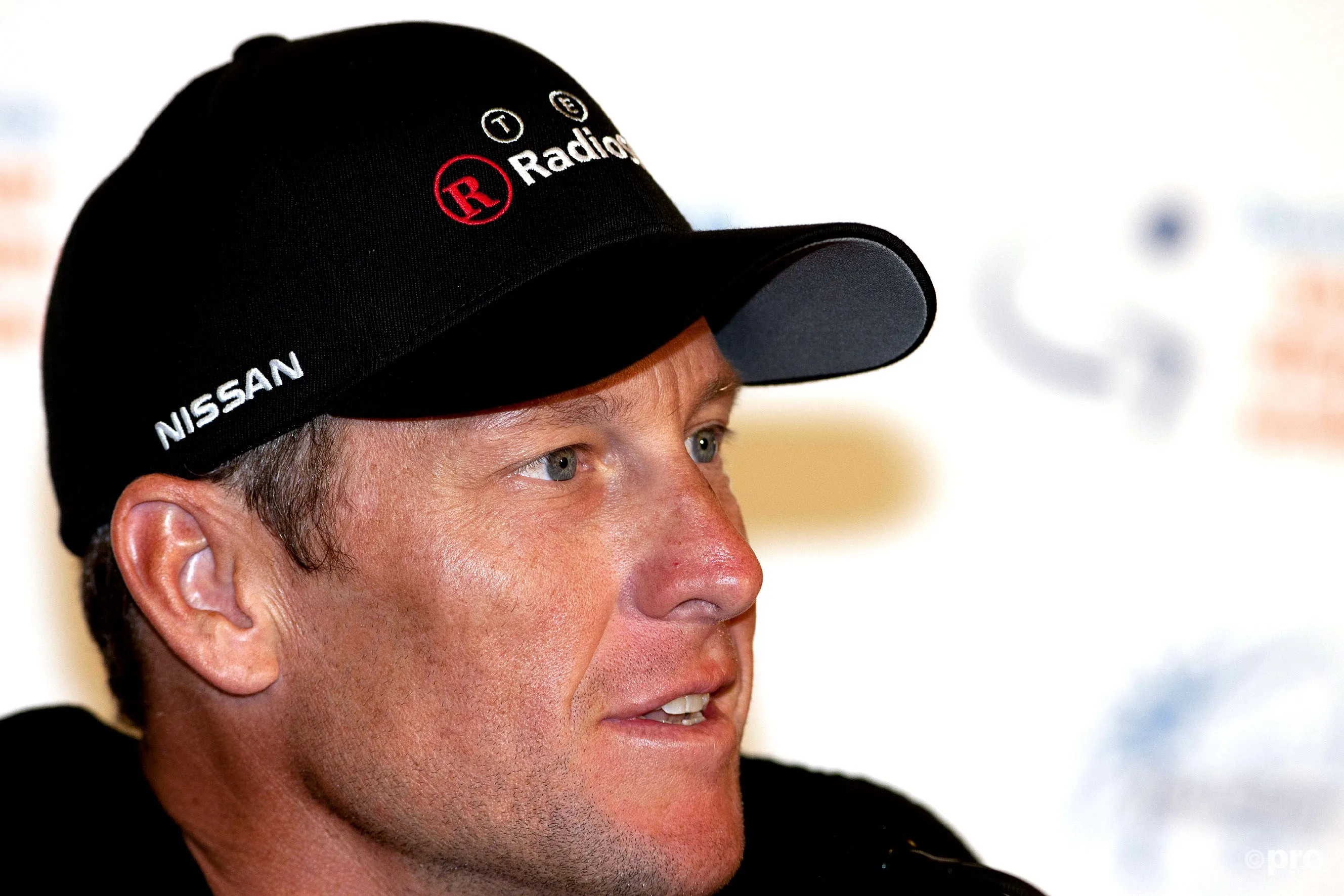"The truth is, you had a drug that was undetectable" - Lance Armstrong opens up on drug use and how he avoided testing positive
CyclingThursday, 14 December 2023 at 16:51

Once renowned as one of the all-time cycling greats, Lance Armstrong has seen his reputation and standing in the sport ruined since finally admitting to using EPO whilst at his Tour de France winning peak.
But how did the American get away with it for so long? On the Club Random podcast alongside Bill Maher, Armstrong has opened up on his drug use. "In a sense, you would foil the system, but what I always said—and I'm not trying to justify what I ever said as something I would want to repeat again—but one of the lines was, 'I've been tested 500 times and I've never failed a drug test,'" he begins. "That's not a lie. That is the truth. There was no way around the test. When I pissed in the cup and they tested the piss in the cup, it passed."
Read also
When pressed by Maher as to how exactly he circumnavigated the tests however, Armstrong goes into the details. "Now, the reality and the truth of all of this is, some of these substances, primarily the one that is the most beneficial, has a four-hour half-life. So certain substances, whether it be cannabis or anabolics, or whatever, have much longer half-lives," he explains. "You could smoke that joint and go to work driving your tractor... in two weeks and test positive, because the half-life is much longer."
"With EPO—which was the rocket fuel that changed not just our sport but every endurance sport—you have a four-hour half-life, so it leaves the body very quickly," Armstrong told Maher. "With a four-hour half-life, you can just do the math."
Read also
As Maher looks shocked, he questions about the potential side effects. "I don't want to encourage anybody to do something that they just don't have to do," Armstrong answers. "The truth is, you had a drug that was undetectable, that was wildly beneficial to performance and recovery. Both are important, but primarily to performance... And, as we were led to believe, which I don't disagree with, if taken under the care of a doctor was safe."
It must be pointed out however, that contrary to Armstrong's comments, USADA believe EPO "has significant clinical utility and therapeutic benefit when used appropriately, but its misuse to gain a performance benefit can result in serious health consequences."
Read also
claps 1visitors 1
Just in
Popular news
Latest comments
- Fantastic climb by Tiberi. Let’s see more of this from him.Pedalmasher19-02-2026
- Loved watching this finale. Brutal climb, looked like a brand new Middle Eastern Alpe d'Huez with those switchbacks on the mountain edge. So much grit on Del Toro's face. I really thought he might catch Tiberi with about 1500m to go. Great stage.antipodeanpedalfan19-02-2026
- You’re expecting cycling to stay immune from this type of conjecture when the worlds’ most watched and listened to figure spouts out similar unsubstantiated crap daily? Most people just follow bad example because it’s a lot easier than figuring out a good one. Anyway, it could be anything, perhaps he just knew Andrew too well, or Sir Jim didn’t want him helping any more of those pesky foreigners and paid him off ;-) He doesn’t seem the Epstein type but if that was it, kudos to him for being practically the only one to resign BEFORE being found out. I find it very concerning that no-one has much to say about any of these people who keep at it until they just can no longer claim their innocence. Who did they learn from, Lance?Mistermaumau19-02-2026
- If you are going to make comments like that, back it up with proof. Otherwise keep them to yourself.Searider18-02-2026
- In the same place as the outcry over boys vs girls losing weight, which, is in about the same place as boys vs girls getting hit, or abused.Mistermaumau18-02-2026
- Haha.awp18-02-2026
- That's a little extreme, you take wins where you can get them.awp18-02-2026
- Ironic no, a British boss of British companies has no problem outsourcing a large proportion of jobs to foreigners and then complains a proportion of that proportion actually lives in the country. And do you expect if you leave that no-one will take your spot?Mistermaumau18-02-2026
- Slowly slowly the youngsters are making more and more of an impact.Mistermaumau18-02-2026
- I agree for certain situations, especially camps and popular training destinations but teams can’t manage or afford to chaperone all their riders all the time. Off season they still have to train and want to be home as much as they can (this is also where they are easiest to « catch »). On the other hand, if riders like Tadej accept « invitations » to ride on certain roads just for promotional purposes like in Gran Canaria they are also responsible for any trouble it attracts, you can’t expect people to stay away once you deliberately notify where you’re going to be and when. SeemsMistermaumau18-02-2026
Loading
4 Comments









